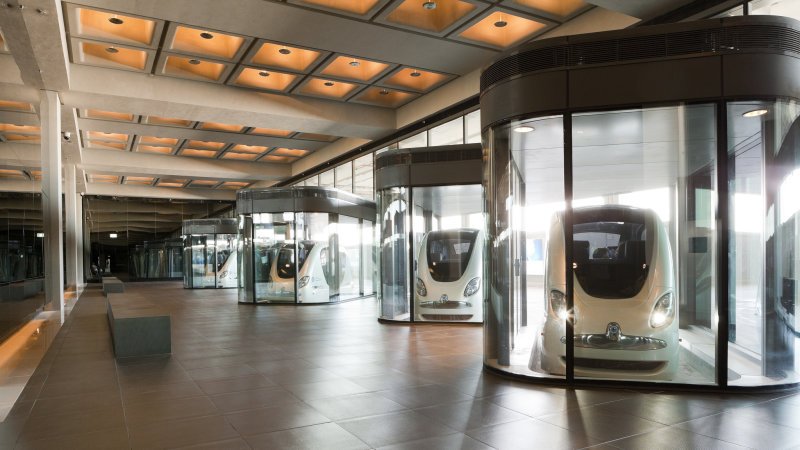Driverless Taxi Pods To Ease Congestion In Gurgaon, India

This makes getting around town a bit of a problem, especially since what roads that exist are in good shape but extremely congested. Additionally, 60,000 new cars find themselves on Gurgaon's roads every month. As a bustling technology hub, many of the city's workers need a more efficient way to commute.
The Times of India reports that Gurgaon will soon be getting a personal rapid transit (PRT) system in the form of driverless taxi pods. (The PRT system shown above is from Masdar City, UAE.) The National Highways Authority of India (NHIA) is contracting a pilot project to build eight miles of the PRT network, which uses 1,100 small pods, each accommodating up to five people at a time, arriving at 16 stations in regular, frequent intervals. The taxi pods are suspended from overhead rails, and travel through town at a speed of about 37 miles per hour. The system can move 30,000 commuters per hour in one direction, which could help to put a dent in congestion on the ground, especially if the PRT network expands after the trial.
An interesting feature of the PRT pods is that if someone is in a real hurry, they can hire an entire pod for themselves, bypassing all other stops along the way to their destination. It's likely that a pod full of people going to the same destination would also bypass other stops, depending on how the system is built.
The NHIA is accepting bids for the project, which is expected to cost about $128 million and take just one year to build. Land for the PRT line has already been set aside. The private contractor would make their money back in 25 years through ticket sales. While similar PRT systems aren't expected to take the world by storm, it just may be the solution Gurgaon needs to make up for a lack of planning and public funding during its initial, massive growth spurt.
Related News


